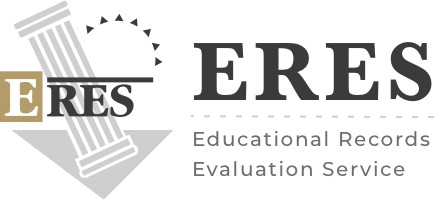Blog
Credential Evaluations in 2025: Emerging Trends for Foreign-Trained Accountants

Credential Evaluations in 2025: Emerging Trends for Foreign-Trained Accountants
Foreign accountants who want to become CPA licensed in the U.S. will encounter different issues while working within a dynamic accounting landscape.
The shifting patterns of CPA exams, professional requirements, and technological advancements drive the continuous transformation of professional credential evaluations.
Several prominent trends related to credential evaluation will shape the industry toward 2025.
What is Credential Evaluation and why is it Necessary for Foreign-Trained Accountants?
The examination of foreign educational qualifications through credential evaluation establishes equivalency between international degrees and U.S. academic requirements.
Foreign-trained accountants must undergo this evaluation process because U.S. regulatory bodies use it to determine if their educational standards match their licensing requirements.
The assessment process for CPA licensure helps state boards of accountancy determine candidate eligibility.
International qualifications must meet the educational requirements that correspond to U.S. accounting standards.
The credentialing process helps identify coursework and certifications that are needed to address any found gaps.
How Do Credentialing Agencies Assess International Qualifications?
At ERES, our experts help you with reviewing academic transcripts and coursework. We compare your foreign education to U.S. degree equivalency and verify document authenticity to ensure you live your dream and achieve greater success without much hassle.
The Role of Foreign-Trained Accountants in Credential Evaluations in 2025
Foreign-trained accountants work as vital contributors to advance the changing format of credential evaluation processes in the future.
Credentialing organizations enhance their evaluation standards to accept various types of educational qualifications because companies increasingly seek global professionals.
Challenges Faced by International Candidates
International accountants experience multiple challenges when they apply for CPA licensure through credential evaluation procedures which comprise two main obstacles:
- Selections among curriculums and coursework from different countries force applicants to fulfill additional academic requirements.
- The process of getting official transcripts checked by foreign institutions along with proper documentation verification takes long periods.
International candidates must wait longer to become CPAs because the licensing evaluation often takes an extended period.
Some candidates need to develop data analytical and accounting software skills to fulfill the modern requirements of the CPA license.
Opportunities Created by Evolving Licensing Standards
Despite these challenges, new licensing standards offer opportunities for international candidates, such as:
- Efficient processing systems for qualified candidates holding foreign credentials exist in countries with robust accounting education.
- The flexible CPA Exam credit transfers enable candidates to achieve credit validity extensions while benefiting from transfer capabilities towards the exam.
- The business sector actively pursues accountants who show experience working on a global scale which provides international degree holders more employment opportunities.
Emerging Trends for Foreign-Trained Accountants
1. Increased Emphasis on Core-Plus-Discipline Model Alignment
The 2024 implemented Core-Plus-Discipline model brings focus to evaluating foreign educational qualifications through assessments of AUD, FAR, and REG core sections coupled with BAR, ISC, and TCP discipline sections.
As a requirement, credentialing organizations must supply in-depth evaluations that show how specific international education matches U.S. CPA specifications.
2. Expanded Recognition of International Credentials
Various state regulatory entities and professional boards have increased their acceptance of international accounting qualifications.
The evaluation process for candidates becomes simpler in nations with robust accounting education programs due to shortened procedures for people demonstrating similar qualification levels.
The role of mutual recognition agreements established by accounting organizations will become more significant during credential evaluation processes.
3. Usage of Digital Verification Tools
Credential evaluators use artificial intelligence (AI) combined with blockchain-based verification systems to speed up and improve their document authentication functions.
The application of this technology produces more efficient evaluations with decreased risks of fraud and misrepresentation.
4. Flexible CPA Exam Credit Transfers
Foreign-trained accountants can benefit from extended CPA exam credit periods established through cooperative moves of NASBA and AICPA to introduce the new licensure model.
Some regulatory areas now enable candidates to transfer CPA exam credits with increased looseness which provides international professionals with flexibility to keep moving forward during relocation.
5. Greater Focus on Technological Competency
The importance of technology in accounting has caused credential evaluators to assess foreign-trained accountants regarding their experience with accounting software, data analytics, and IT system controls.
Extra courses alongside technology-related certifications serve as third-party evaluation recommendations to help fill possible skill areas.
6. Changes in Educational Requirements for International Candidates
State authorities across the country have started adopting competency-based assessment criteria which replace the previous credit-hour system as a basis for CPA licensure eligibility.
The new education requirements open opportunities for foreign-trained accountants who have worked in practical accounting and financial roles.
7. Impact of Remote Learning and Online Credentials
Accredited online accounting programs have opened opportunities for foreign-trained accountants to use remote learning to fulfill U.S. CPA eligibility requirements.
Credential evaluators accept recognized online coursework during their assessment process.
8. Stronger Collaboration Between Global Accounting Bodies
Accounting organizations throughout the world have increased their collaborative efforts to streamline the credential evaluation process.
Organizations testing credentials now advance new systems that enable overseas-trained accounting professionals to gain U.S. CPA approval through mutual certification recognition programs.
Conclusion
For foreign-trained accountants, the credential evaluation landscape in 2025 offers both challenges and opportunities.
Foreign accountants who want to become CPAs should maintain awareness of changing requirements while using digital platforms and following Core-Plus-Discipline standards to achieve successful U.S. CPA licensing.
All international candidates must check their State Board of Accountancy and professional credentialing services to verify compliance with current requirements.
P.S. It’s always better to invest in a professional credential evaluation service and let experts handle it on their own so you don’t miss out on anything important.
Call ERES now to leverage credential evaluation services!
Start Now
ERES
Educational Records Evaluation Service helps Non-US educated individuals to receive their US equivalences with our credential evaluation reports.
Services
Contact us
Tue - Fri: 10:00 to 16:00 ( PST )
4773 Mangels Blvd, Fairfield, CA 94534, USA.
© 2025 Educational Records Evaluation Service. All rights reserved.











